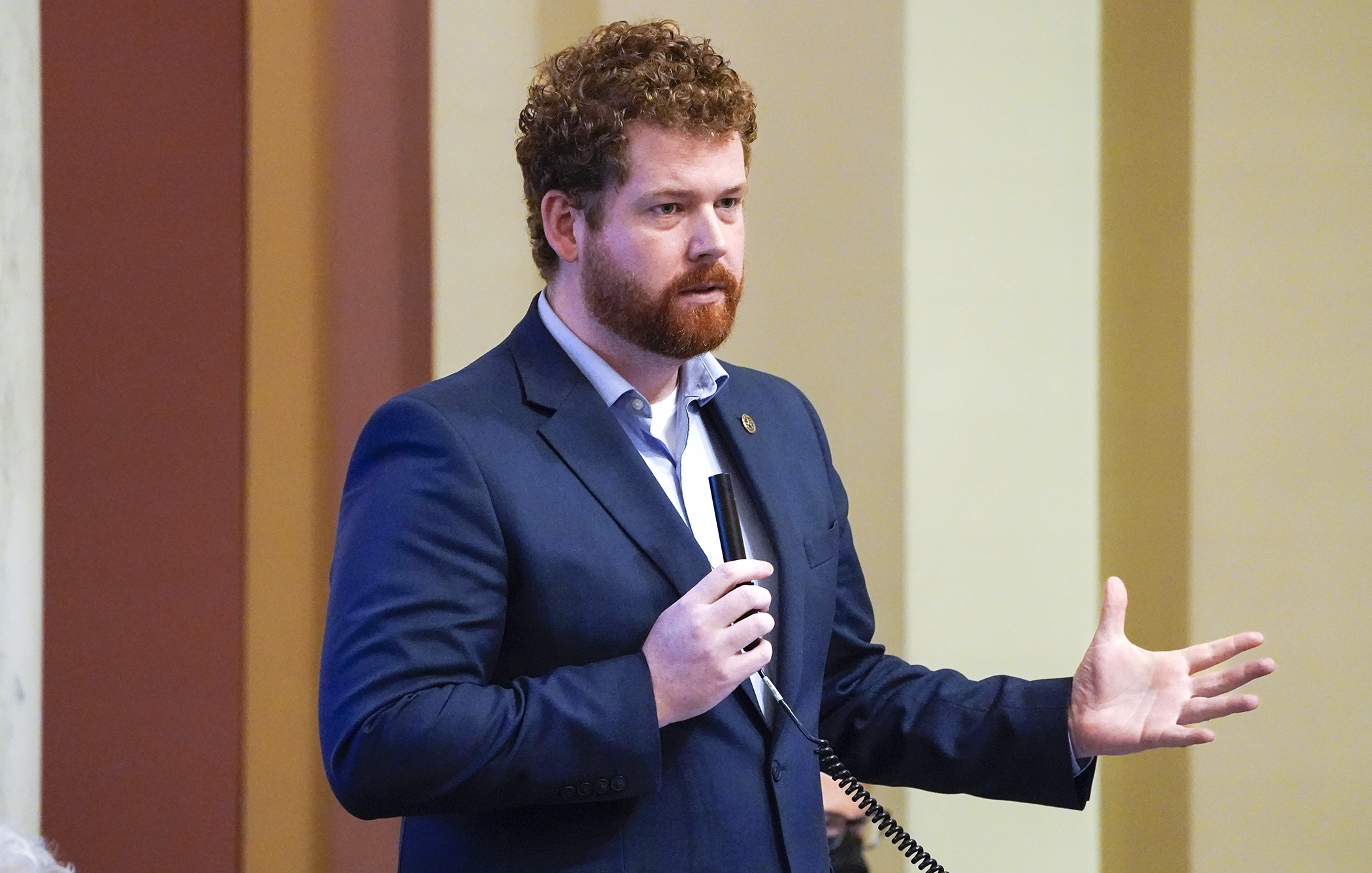Lifting of growler cap included in liquor bill that passes House

It could be happier hours for some of the state’s most popular breweries because customers may be able to take more beverage with them.
As part of the omnibus liquor bill, passed 85-48 by the House Wednesday, brewers who produce up to 150,000 barrels of beer annually would be permitted to sell 64-ounce growlers on site.
It would affect the state’s six-largest craft breweries — Surly, Summit, Lift Bridge, Fulton, Schell’s and Castle Danger — that can’t currently sell growlers because they exceed the current 20,000-barrel production limit.
Sponsored by Rep. Zack Stephenson (DFL-Coon Rapids), HF2767/SF3008* as amended, would also allow microbreweries to sell six-packs.
Additionally, it would expressly include Minnesota distilleries in a nondiscriminatory sales clause, which prohibits wholesalers from having preferred retail customers for spirits.
The bill now returns to the Senate, which passed its version 66-0 May 5. Sen. Gary Dahms (R-Redwood Falls) is the sponsor.
Stephenson said the bill frees the growler, offers broad flexibility to small breweries and distilleries to sell to their customers and ensures competition in a good, robust way.
Bill detractors say it caters too much to the existing liquor industry, with a provision that would create a 12-member advisory council to offer recommendations on liquor legislation. Each of the three-tiered system of wholesalers, retailers and manufacturers would have equal representation on the council along with legislative liaisons.
Rep. Anne Neu Brindley (R-North Branch) unsuccessfully offered an amendment that would have eliminated the advisory board, saying the Legislature would be abdicating its responsibility.
The proposed council differs from every current council, which is to support outside entities, such as the environment. “This council works in the best interest of themselves,” she said.
Rep. Jordan Rasmusson (R-Fergus Falls) noted all members of the proposed council are from industry and no one would be looking out for the public, including public health or public safety.
The council’s purpose is to provide guidance in an obscure area of law, Stephenson said. “We have a lot to learn from people who live in that space.”
The Senate bill only addresses the nondiscriminatory sales clause.
Other provisions in the House version would allow:
- all distilleries to offer a cocktail room;
- municipalities to issue seven-day temporary permits (up from four-day) for county fairs;
- liquor stores to sell citrus fruit and glassware;
- bars to sell alcohol while showing World Cup soccer games;
- the City of Anoka to create a social district where people can take their drinks out of bars;
- 17 year olds to serve alcohol, but not tend bar; and
- sale of beer and wine for ballparks and other community spots, as 3.2% alcohol beer is harder to find.
The bill would also increase the amount of wine people could have shipped to their home from two cases to 12, and would tax those sales.
According to Stephenson, the bill represents a compromise and offers something most in the three-tier system of producer/wholesaler/retailer will like. The one group left out is grocery and convenience stores, which would continue to be limited to selling 3.2% beer. Food sellers would have a seat on the advisory council, however.
Related Articles
Search Session Daily
Advanced Search OptionsPriority Dailies
Ways and Means Committee OKs proposed $512 million supplemental budget on party-line vote
By Mike Cook Meeting more needs or fiscal irresponsibility is one way to sum up the differences among the two parties on a supplemental spending package a year after a $72 billion state budg...
Meeting more needs or fiscal irresponsibility is one way to sum up the differences among the two parties on a supplemental spending package a year after a $72 billion state budg...
Minnesota’s projected budget surplus balloons to $3.7 billion, but fiscal pressure still looms
By Rob Hubbard Just as Minnesota has experienced a warmer winter than usual, so has the state’s budget outlook warmed over the past few months.
On Thursday, Minnesota Management and Budget...
Just as Minnesota has experienced a warmer winter than usual, so has the state’s budget outlook warmed over the past few months.
On Thursday, Minnesota Management and Budget...